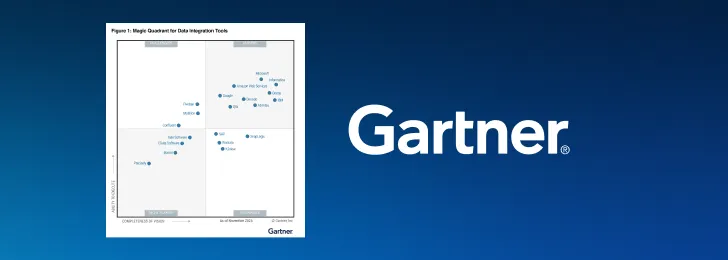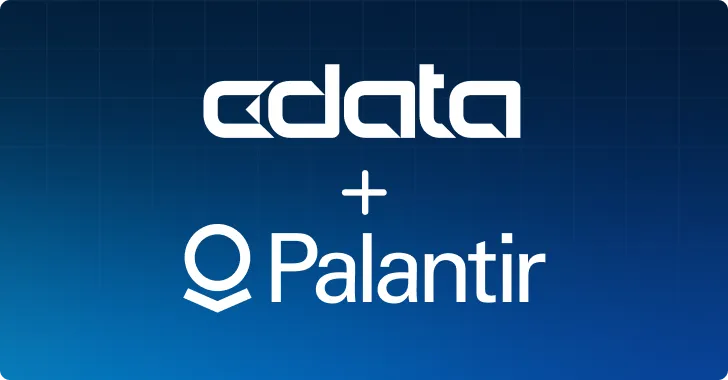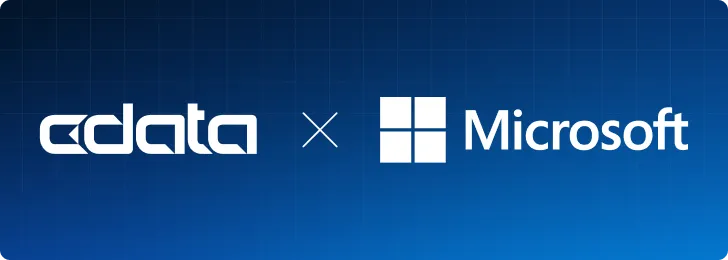
As AI agents become increasingly capable of handling complex business workflows, the ability to easily access external sources is more important than ever. Recently, our team conducted an in-depth comparison between Zapier's new MCP (Model Context Protocol) capabilities and CData's MCP Servers for AI data integration. We compared the Zapier Salesforce MCP Server to the CData Salesforce MCP Server and the results reveal some fascinating insights about the future of intelligent data connectivity.
A tale of two approaches
Zapier's vision: Curated simplicity
Zapier has entered the MCP space with a focused approach, offering around 22 pre-configured tools that map directly to specific actions like "create lead," "convert lead to contact," or "find records by query." Their philosophy centers on providing ready-to-use, action-specific tools that require minimal setup. It draws on Zapier’s core iPaaS capability for orchestrating task execution between systems.
CData's philosophy: Intelligent flexibility
CData takes a fundamentally different approach. Rather than prescriptive tools oriented towards action, we provide intelligent database-like access to your systems, ideal for data handling by AI. CData MCP Servers expose the full data model—tables, relationships, stored procedures—and let the LLMs’ reasoning capabilities determine the best path to accomplish any task. CData can do this because its connectors create a standardized SQL layer on top of every one of its 350+ data source. The connectors also hit every endpoint available in every version of the source system's APIs – so nothing is off-limits.
Real-world testing: Where the rubber meets the road
The good: Both solutions handle basic operations
In our testing with Salesforce as a source, both approaches successfully handled fundamental operations:
- Creating leads with extracted information from uploaded documents
- Converting leads to contacts and accounts
- Performing basic queries and data retrieval
Both solutions demonstrated the ability to read PDF invoices, extract relevant information, and populate CRM records, showcasing the power of AI-driven data entry.
The revealing differences
Token efficiency
One critical difference emerged around resource consumption. Zapier's specific tools complete actions in single API calls, while CData's exploratory approach requires multiple queries to understand the data model before executing operations. This raises important questions about token usage and cost optimization for enterprises.
Handling complex scenarios
The real differentiation appeared when testing edge cases. Zapier's predefined tools sometimes led Claude down unintended paths, like updating lead information when asked to attach a file, rather than actually creating file attachments. CData's approach, while requiring more initial exploration, provided more systematic and predictable outcomes.
The stored procedure advantage
A particularly illuminating moment came when testing lead conversion. Initially, Claude chose CData's manual approach (creating accounts, contacts, and updating lead status separately). But Claude was able to find and use CData’s stored procedures. It then seamlessly leveraged Salesforce's native convertLead procedure, demonstrating how CData's comprehensive access unlocks platform-specific optimizations that Zapier's curated approach might miss.
Uncovering the philosophical difference
As noted in our opening, it’s the core capabilities of these underlying technologies that drives the differences in the MCP server build. Zapier’s tools are efficient, specific, and well designed for executing specific actions. CData’s tools are flexible, broadly applicable, and ideal for data handling and querying.
An interesting technical detail emerged around custom field handling. While CData's connectors automatically expose custom fields as regular table columns (complete with proper field names), Zapier's API-based approach returns cryptic field IDs that require additional context to interpret meaningfully.
This might seem like a minor detail, but it represents a broader philosophical difference: CData's database abstraction layer provides a SQL-like experience that is more intuitive to LLMs and AI agents, while API-based approaches often expose low-level technical details that complicate AI reasoning.
Building on CData’s data handling advantage
As we look to build upon our data handling advantage, we are exploring capabilities for intelligent filtering and prioritization to make our capabilities even more effective for LLMs:
- Smart table prioritization: Using relationship analysis and usage patterns to surface the most relevant tables first
- Context-aware discovery: Allowing natural language queries like "show me sales-related tables" to filter the data model intelligently
- Progressive disclosure: Starting with core entities and expanding based on user needs
Leveraging a combined approach
Rather than viewing this as an either/or decision, the most powerful enterprise AI implementations will likely leverage hybrid approaches. Think of it like having both a Swiss Army knife and a full workshop—each has its place depending on the job at hand.
Zapier-style MCP is suited for:
- High-frequency, standardized operations
- Workflows requiring strict guardrails
- Scenarios where token efficiency is paramount
CData-style MCP is suited for:
- Filtering, sorting, joining, or aggregating data
- Data exploration and analysis
- Complex, multi-step operations
- Scenarios requiring deep system integration
Practical enterprise examples
Here's how forward-thinking organizations might blend both approaches:
Sales operations team: Use Zapier's streamlined tools for routine lead processing and follow-up sequences, while leveraging CData's comprehensive access to find similarities and patterns between deals, flagging overdue tasks, and identifying at-risk opportunities.
Customer support: Deploy Zapier connectors for standard ticket creation and escalation workflows but rely on CData when agents need to investigate complex customer issues that require joining data from CRM, billing, product usage, and support history systems.
Finance department: Automate monthly invoice processing through Zapier's predefined accounting workflows, while using CData's flexible query capabilities for ad hoc financial analysis, compliance reporting, and integration with custom ERP modules.
Executive dashboard creation: Zapier handles the routine updates to standard KPI dashboards, while CData powers the deep-dive analysis that executives request during board meetings, like "show me customer retention trends by product line and geographic region over the past 18 months."
The key is recognizing that AI agents in enterprise environments need both precision tools for known workflows and exploration capabilities for the unexpected questions that drive business insights. Organizations that master this balance will find themselves with AI systems that are both reliable for daily operations and powerful for strategic analysis.
Laying the data foundation for AI
This comparison reveals that we're still in the early stages of AI-driven business automation. The fundamental tensions between simplicity and flexibility or between safety and capability will continue to drive innovation in this space.
What's clear is that the quality of data connectivity—how well AI agents can understand, access, and manipulate business systems—will be a key differentiator in the AI-powered enterprise. Companies that invest in robust, intelligent data integration infrastructure today will be best positioned to leverage advancing AI capabilities.
The future belongs to organizations that can seamlessly blend human judgment with AI execution, and that future starts with getting underlying data connectivity right.
Try CData MCP Servers Beta
As AI moves toward more contextual intelligence, CData MCP Servers can bridge the gap between your AI and business data.





